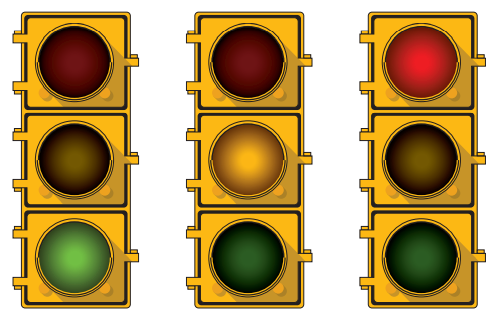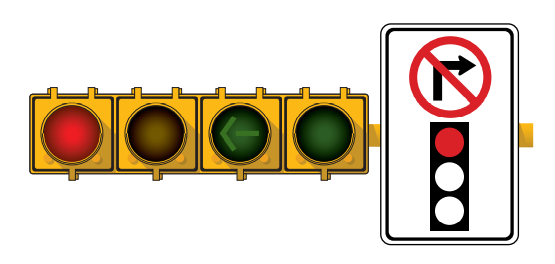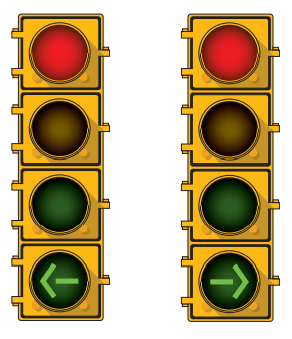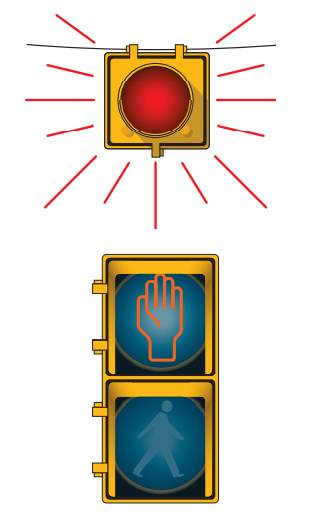Yellow Traffic Lights

Traffic Signals
A green light at an intersection means you may turn left, right or drive straight though the intersection, unless a sign prohibits any of these movements, once the intersection is clear and it is safe to do so.
If you want to turn left you can enter the intersection on a green light,
but you must yield to oncoming traffic and pedestrians. If traffic
is heavy, you may be forced to complete your turn on an amber
(yellow) or red light.

You can often predict the appearance of an amber (yellow) light by taking note of how long the light has been green and by watching for the “don’t walk” light, especially if it is flashing. When approaching an amber (yellow) light at an intersection, you must stop before entering the crosswalk. If you have already entered, or cannot stop safely, proceed with caution.
When approaching a red light, you must stop and remain stopped until the light changes. If you are making a right turn at an intersection, you may make the turn, but only after stopping and yielding the right of way to pedestrians and to any vehicles travelling through the intersection.

This also applies to making a left turn at the intersection of two one-way streets. Some intersections may have a sign prohibiting turns on red lights. You may not make a U-turn at any intersection where there are traffic lights unless there is a sign to indicate U-turns are permitted.
When approaching a red light and a light with a solid green arrow, you may proceed in the direction of the arrow only after yielding the right of way to any other vehicles and pedestrians.

When approaching a red or green light and a flashing green (left turn) arrow, you may proceed in the direction of the green arrow.

After the left turn arrow, an amber (yellow) arrow may appear. This means the green light is about to appear for traffic in both directions.

When approaching a flashing amber (yellow) light, you must proceed with caution. Alternating flashing amber (yellow) lights may warn you that traffic lights ahead are red or about to turn red.

When approaching an amber (yellow) light, you must yield the right of way to any pedestrians in the crosswalk or pedestrian corridor.
When approaching a flashing red light you must stop, but you may then proceed when it is safe. Pedestrians may not cross an intersection when they are facing a red light, an amber (yellow) light or a “don’t walk” light or symbol. A flashing “don’t walk” means pedestrians should finish crossing the street if they have already started. Some signals have a countdown showing how many seconds remain before it is unsafe.

